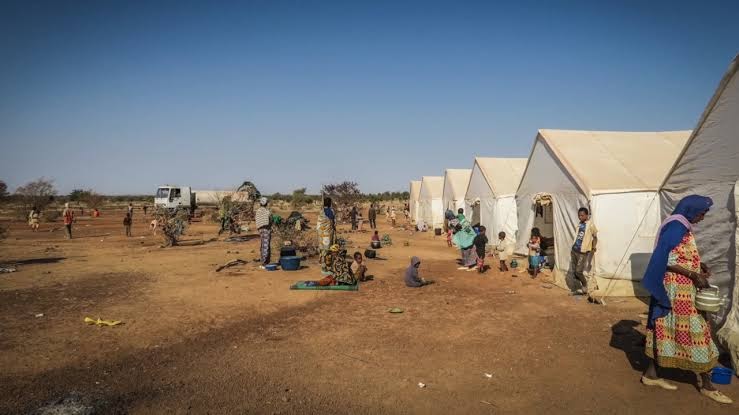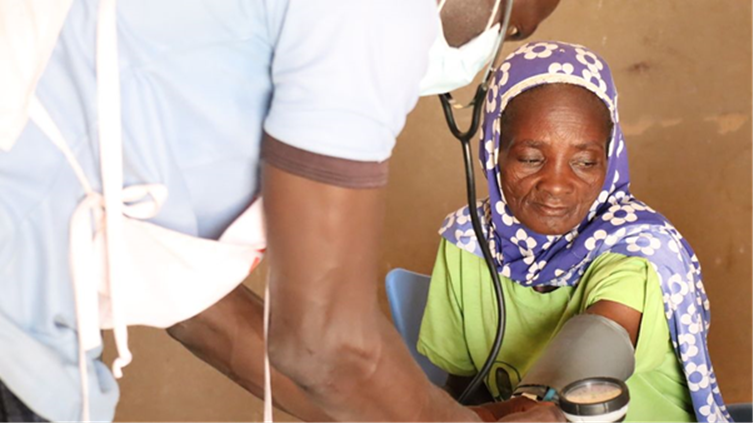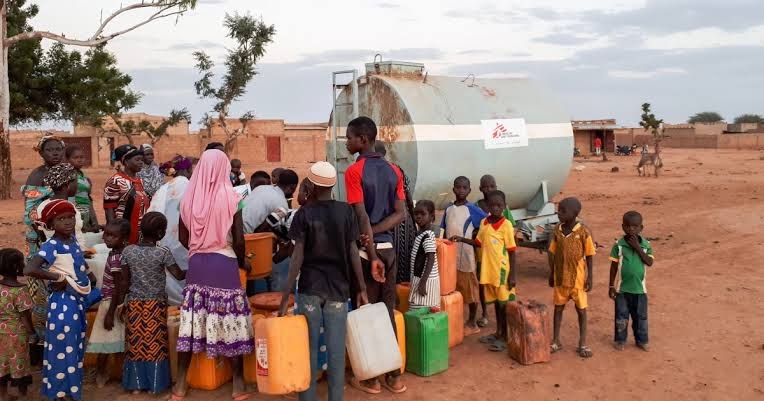MSF Providing Healthcare Assistance To Burkina Faso
Poor health crisis in Burkina Faso increases as people suffer from parasitic infections, according to MSF.

Mèdecins San Frontìères (MSF), also known as Doctors Without Borders, an international Non-Governmental Organisation, has been providing healthcare support to displaced people living in Burkina Faso North region.
“Our main objective is to provide healthcare services to both displaced people and host communities that have no access to them and already suffered a lot because of the widespread violence,” says MSF
More than 1,600 medical consultations have been provided to host and displaced communities in an area where around 15,000 people live between Jan. and March, 2021, the organisation said.
Since Jan, 2021, MSF teams have been conducting check-ups for displaced people in Sifou, Todiame, Rounge, and Ouindigui, with “mobile clinics” being deployed to support the MSF movement in Titao town.

Burkina Faso is facing an increasing security crisis, as armed groups go on mass destruction and abductions.
“We have nothing left, since we fled the conflict. We don’t even have money to pay for treatment,” says Zallé Ramata, a displaced woman living in the village of Sirfou.
Zallè brought two of her children to receive free medical assistance from MSF doctors after throwing up all night.
There are 23 health centres in Titao; 15 are not functioning properly, while three are shut down. With insecurity, long distance, and low means of transportation, it has made access to basic amenities difficult.
But, MSF mobile teams regularly visit Sirfou and the neighbouring villages of Todiame, Rounga, and Ouindigui.
Every week, an MSF team of five travels several kilometres to reach these villages, often on very poor roads.
“These villages are located kilometres from the nearest health centre. In Sirfou for example, the nearest health centre is seven kilometres away. Majority of displaced persons have neither the means of transportation nor the money to get there,” says Monique Diarra, an MSF nurse.
“Our medical work base in Titao is a short-term solution we launched this year to respond to the needs of people who were recently displaced,” says Dr Diallo Alpha Amadou, MSF’s medical coordinator in Burkina Faso.
MSF’s teams also support five health facilities in Titao to help them regain their working capacity, as a long-term solution.
“When these health centres are ready to admit patients again, we will move our mobile clinics towards other villages,” says Dr Alpha.
By the end of 2020, many displaced people that had settled in Titao decided to come back to their areas but the local health centres are still closed.

MSF’s logistics teams have helped with their water facilities to increase clean water. With increase in displacements, living conditions for displaced people are poor and with lack of clean water, diseases can easily spread.
“We receive patients suffering from diseases caught by drinking polluted or dirty water. In areas in the North region, where displaced people settle, access to clean water remains a challenge,” says Dr Alpha.
“The lack of clean water access is behind parasitic infections and other water-borne diseases such as cholera and diarrhoea.”
Support Our Journalism
There are millions of ordinary people affected by conflict in Africa whose stories are missing in the mainstream media. HumAngle is determined to tell those challenging and under-reported stories, hoping that the people impacted by these conflicts will find the safety and security they deserve.
To ensure that we continue to provide public service coverage, we have a small favour to ask you. We want you to be part of our journalistic endeavour by contributing a token to us.
Your donation will further promote a robust, free, and independent media.
Donate HereStay Closer To The Stories That Matter




